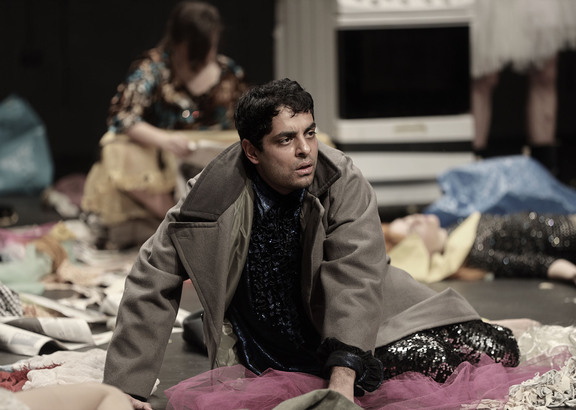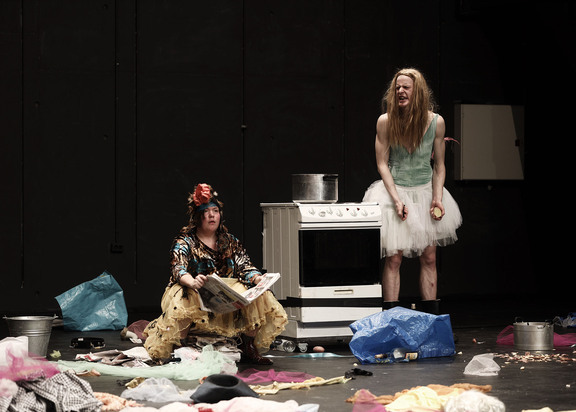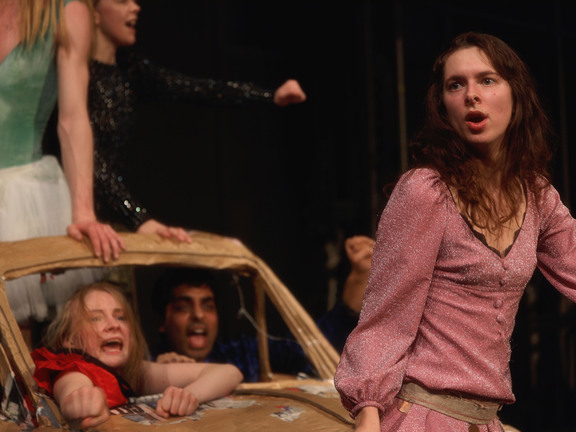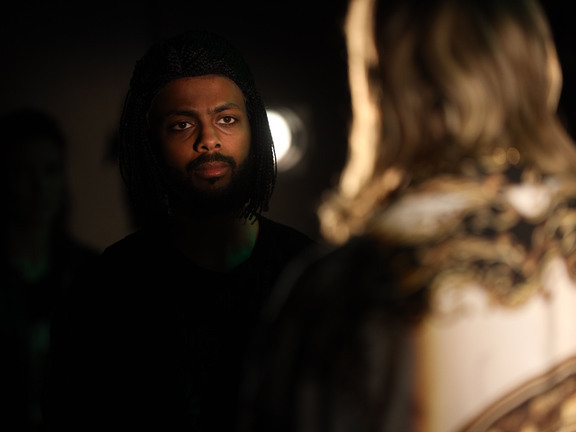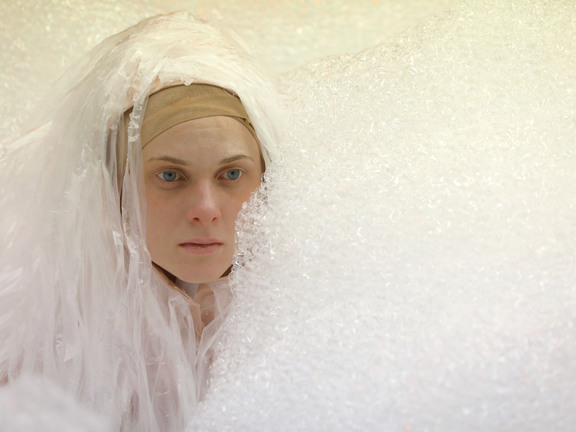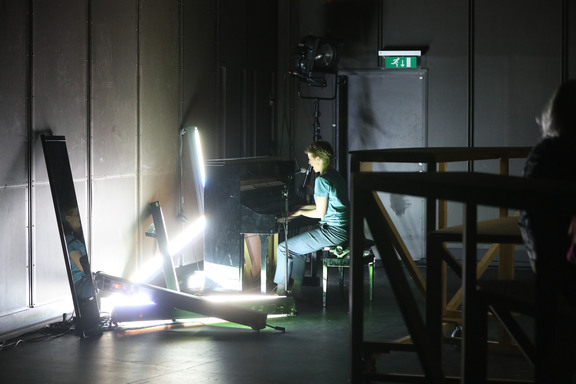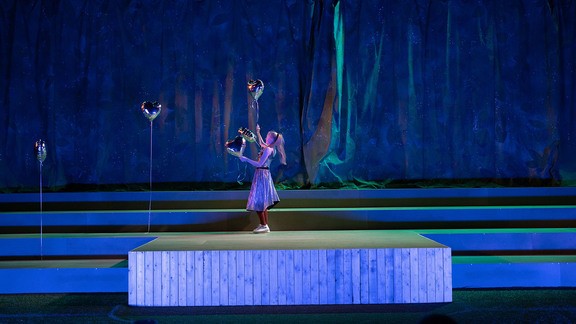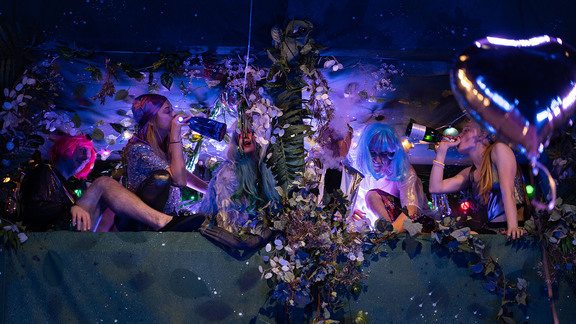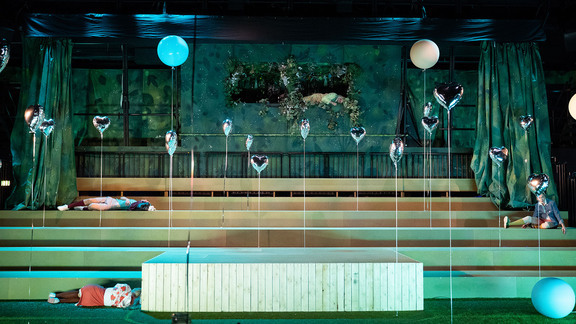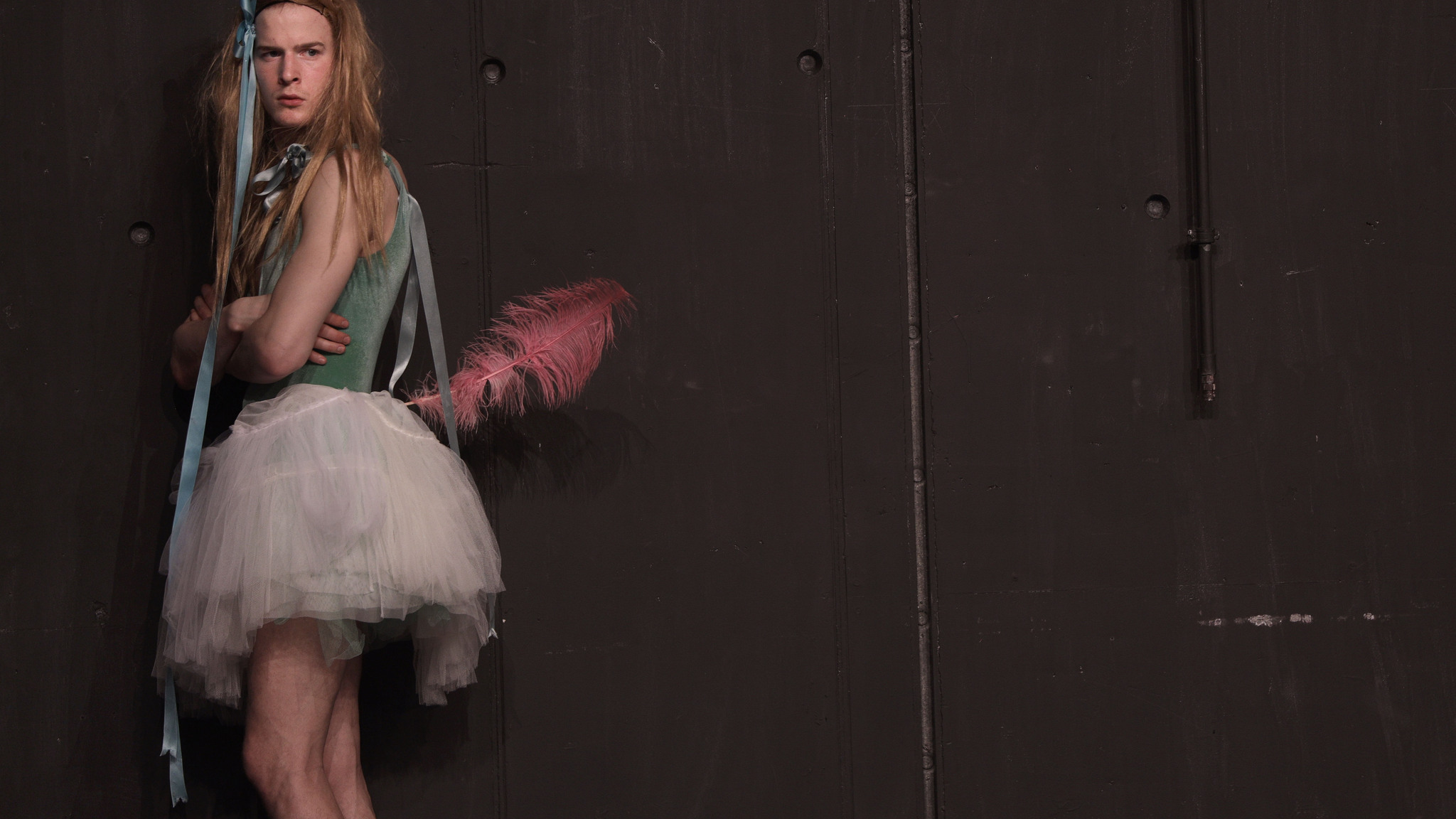

Bachelor in Acting
Students taking a Bachelor’s degree in acting learn to be independent creative artists of a high calibre, gaining experience in a rich array of methods to develop their own expressive abilities. The programme gives the student a solid foundation in acting technique, ready for professional work in stage productions, film, TV and radio. Theatre is a collaborative medium, so students also learn to work both as part of an ensemble and in partnership with professionals from other artistic and theatrical fields.
The course is grounded in the principles established by the Russian theatre director and educator Stanislavski. The core subject is the theory of acting, beginning in the first year with an introduction to foundational acting techniques. The course progresses steadily towards professional-level presentations in the third year of study, with additional opportunities to work on and perform in independent stage projects.
Acting technique comprises roughly half the course. The other half consists of supplementary modules such as movement and improvisation, dance, elocution and vocal training, singing and music, text and poetry, in addition to art theory and methodology. There are also modules in film and radio theatre, in collaboration with NRK, Norway’s broadcasting company.
Programme description
Programme description not available in English. Language of instruction is Norwegian.
Course structure
| Course code | Course name | ECTS Credits |
|---|---|---|
| TS101 | Acting 1 | 25 |
| TS105 | Movement 1 | 10 |
| TS106 | Voicework and Language 1 | 8 |
| TS107 | Text work 1 | 3 |
| TS108 | Song 1 | 5 |
| TS109 | Understanding art and theatre 1 | 5 |
| TS110 | Developing an idea, and staging it 1 | 4 |
| Course code | Course name | ECTS Credits |
|---|---|---|
| TS208 | Song 2 | 5 |
| TS205 | Movement 2 | 9 |
| TS207 | Text work 2 | 3 |
| TS201 | Acting 2 | 26 |
| TS206 | Voicework and Language 2 | 9 |
| TS209 | Understanding Art and Theatre 2 | 5 |
| TS210 | Developing an idea, and staging it 2 | 3 |
| Course code | Course name | ECTS Credits |
|---|---|---|
| TS301 | Acting 3 - Film | 6 |
| TS302 | Acting 3 - Multiartistic Work | 8 |
| TS305 | Movement 3 | 7 |
| TS306 | Voicework and Language 3 | 6 |
| TS307 | Text work 3 | 2 |
| TS308 | Song 3 | 6 |
| TS309 | Understanding art and theater 3 | 2 |
| TS310 | Ideutvikling og scenisk realisering 3 | 4 |
| TS311 | Acting 3 | 19 |
Exchange
These exchange agreements are valid for bachelor in acting:
Admissions
The application deadline was 01 February 2026. New application deadlines are announced early in the Autumn Semester.
About the Academy of Theatre
Since its founding in 1953, the Academy of Theatre has been Norway’s leading educational institution for the acting professions. The Academy offers a three-year Bachelor’s course for actors and directors and a two-year Master’s course in theatre, specialising in acting, direction, stage writing and stage design. The department also offers a practice-oriented teacher training course (PPU) for drama teachers.
The Academy embraces both traditional and experimental techniques. Our primary goal is to help our students develop all the skills they need for a career in theatre, uniting the traditional craft that has long underpinned our great theatrical institutions with the best of the more experimental and creative techniques coming from the independent field.
The Academy offers not only a valuable vocational education, but also a first-class arts education. We aim to encourage and develop our students’ artistic abilities, giving the theatrical world not only the supply of new talent it craves, but perhaps also some fresh perspectives it doesn’t yet know that it needs.
